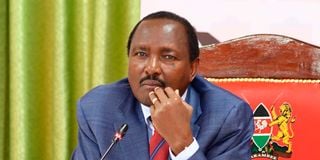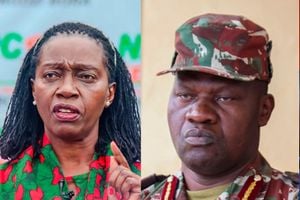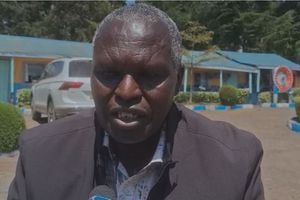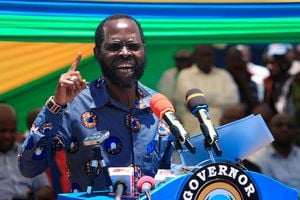Blow to Kalonzo in battle over IEBC selection panel

Wiper Party Leader Kalonzo Musyoka.
Wiper leader Kalonzo Musyoka has suffered a major political blow after his bid to have his ally appointed to the Independent Electoral and Boundaries Commission (IEBC) selection panel was quashed.
The Political Parties Dispute Tribunal (PPDT) on Tuesday instead ordered that the name of Dr Augustus Muli be submitted by the Azimio La Umoja One Kenya Coalition for appointment by President William Ruto.
The opposition coalition had submitted the name of Amb Koki Muli, a close ally of Mr Musyoka, for appointment. But the court ordered that Dr Muli, who was elected by the minority coalition, should sit in the nine-member board. The orders now pave the way for the panel to be appointed and for the recruitment of new IEBC commissioners to begin.
Under the Political Parties Liaison Committee (PPLC), the majority coalition, minority coalition and non-parliamentary parties were to select one candidate each.
Mr Evans Misati was chosen to represent the non-parliamentary parties, while Mr Nicodemus Bore was chosen to represent the majority party.
Dr Muli of the National Liberal Party (NLP) was chosen to represent the minority coalition after defeating Wiper's Amb Muli in an election presided over by the IEBC.
But the opposition coalition tried to replace Dr Muli with Amb Muli, forcing the NLP to go to court.
The Nation found that there was a consensus among some of the Azimio member parties to have a Wiper candidate elected to the minority seat. Wiper had even convinced Janet Mwema of Chama Cha Uzalendo, which is associated with Machakos Governor Wavinya Ndeti, to drop out in favour of Amb Muli. However, efforts to persuade Dr Muli to drop out failed.
In an earlier interview, an ODM official told the Nation that small parties in Azimio were ganging up against Amb Muli over an opinion piece she wrote in one of the local dailies opposing the inclusion of more parties in the selection panel. The opinion piece was published during the National Dialogue Committee (NADCO) which expanded the panel from seven to nine members.
"It is because of the NADCO that the PPLC now has three slots. She had argued that it should not be opened up for more political parties. So the argument was, 'why should she benefit from something she had opposed?'" the official said.
The small parties also refused to be persuaded to back the Wiper candidate because of a comment by Mr Musyoka that the country did not need small parties.
Dr Nelson Makanda and Ms Fatuma Saman, who were on the previous selection panel, have been retained by the Inter-Religious Council, while Tanui Andrew Kipkoech has been selected by the Institute of Certified Public Accountants of Kenya.
The Law Society of Kenya (LSK) has one slot and the Parliamentary Service Commission (PSC) has two slots. The two PSC slots will be filled by candidates from Raila Odinga's Orange Democratic Movement (ODM) and President William Ruto's United Democratic Alliance (UDA).
The standoff has since delayed the reconstitution of the IEBC after the courts blocked President Ruto from appointing members to the panel. The commission has been dysfunctional since the resignation of the Wafula Chebukati-led team in January last year.
However, it has proved to be a blessing in disguise for MPs threatened with recall for voting in favour of the withdrawn Finance Bill 2024.
The aggressive agitation by the youth appears to be waning as the process of recruiting new IEBC commissioners continues to drag on. Recalling an MP requires the involvement of the IEBC, which is currently dysfunctional.
Apart from the youth-led push, Mr Odinga's ODM had also indicated its plans to initiate the recall of at least six MPs who supported the bill.
The party singled out Elisha Odhiambo (Gem), Gideon Ochanda (Bondo), Elijah Memusi (Kajiado Central), Caroli Omondi (Suba South) and Emmanuel Wangwe (Navakholo).
The procedure for recalling a legislator is that a voter who wishes to recall their MP should prepare and submit a recall petition to the IEBC.
The second step is to collect the names and signatures of at least one-third of the registered voters in the constituency in support of the recall petition.
The IEBC is required to verify the list of names supporting the recall within 30 days of receiving it, after which it must issue a notice of recall to the Speaker within 15 days.
The Commission is also required to prepare and conduct a recall vote. This must be done within 90 days from the date the notice of recall is served on the Speaker. Given the delay in reconstituting the IEBC and the winding nature of the process, the youth may be forced to wait for the 2027 elections to punish their MPs.





